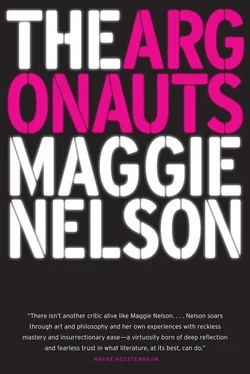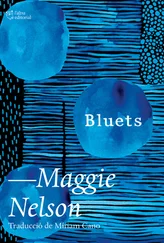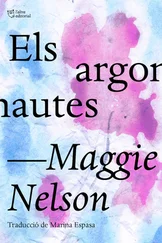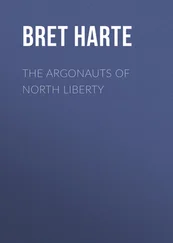Many feminists have argued for the decline of the domestic as a separate, inherently female sphere and the vindication of domesticity as an ethic, an affect, an aesthetic, and a public . I’m not sure what this vindication would mean, exactly, though I think in my book I was angling for something of the same. But even then I suspected that I was doing so because I didn’t have a domestic, and I liked it that way.
I liked Fallen Soldier because it gave me time to learn about your son’s face in mute repose: big almond eyes, skin just starting to freckle. And clearly he found some novel, relaxing pleasure in just lying there, protected by imaginary armor, while a near stranger who was quickly becoming family picked up each limb and turned it over, trying to find the wound.
Not long ago, a friend came over to our house and pulled down a mug for coffee, a mug that was a gift from my mother. It’s one of those mugs you can purchase online from Snapfish, with the photo of your choice emblazoned on it. I was horrified when I received it, but it’s the biggest mug we own, so we keep it around, in case someone’s in the mood for a trough of warm milk or something.
Wow , my friend said, filling it up. I’ve never seen anything so heteronormative in all my life .
The photo on the mug depicts my family and me, all dressed up to go to the Nutcracker at Christmastime — a ritual that was important to my mother when I was a little girl, and that we have revived with her now that there are children in my life. In the photo I’m seven months pregnant with what will become Iggy, wearing a high ponytail and leopard print dress; Harry and his son are wearing matching dark suits, looking dashing. We’re standing in front of the mantel at my mother’s house, which has monogrammed stockings hanging from it. We look happy.
But what about it is the essence of heteronormativity? That my mother made a mug on a boojie service like Snapfish? That we’re clearly participating, or acquiescing into participating, in a long tradition of families being photographed at holiday time in their holiday best? That my mother made me the mug, in part to indicate that she recognizes and accepts my tribe as family? What about my pregnancy — is that inherently heteronormative? Or is the presumed opposition of queerness and procreation (or, to put a finer edge on it, maternity) more a reactionary embrace of how things have shaken down for queers than the mark of some ontological truth? As more queers have kids, will the presumed opposition simply wither away? Will you miss it?
Is there something inherently queer about pregnancy itself, insofar as it profoundly alters one’s “normal” state, and occasions a radical intimacy with — and radical alienation from — one’s body? How can an experience so profoundly strange and wild and transformative also symbolize or enact the ultimate conformity? Or is this just another disqualification of anything tied too closely to the female animal from the privileged term (in this case, nonconformity, or radicality)? What about the fact that Harry is neither male nor female? I’m a special — a two for one , his character Valentine explains in By Hook or By Crook .
When or how do new kinship systems mime older nuclear-family arrangements and when or how do they radically recontextualize them in a way that constitutes a rethinking of kinship? How can you tell; or, rather, who’s to tell? Tell your girlfriend to find a different kid to play house with , your ex would say, after we first moved in.
To align oneself with the real while intimating that others are at play, approximate, or in imitation can feel good. But any fixed claim on realness, especially when it is tied to an identity, also has a finger in psychosis. If a man who thinks he is a king is mad, a king who thinks he is a king is no less so .
Perhaps this is why psychologist D. W. Winnicott’s notion of “feeling real” is so moving to me. One can aspire to feel real, one can help others to feel real, and one can oneself feel real — a feeling Winnicott describes as the collected, primary sensation of aliveness, “the aliveness of the body tissues and working of body-functions, including the heart’s action and breathing,” which makes spontaneous gesture possible. For Winnicott, feeling real is not reactive to external stimuli, nor is it an identity. It is a sensation — a sensation that spreads. Among other things, it makes one want to live.
Some people find pleasure in aligning themselves with an identity, as in You make me feel like a natural woman —made famous by Aretha Franklin and, later, by Judith Butler, who focused on the instability wrought by the simile. But there can also be a horror in doing so, not to mention an impossibility. It’s not possible to live twenty-four hours a day soaked in the immediate awareness of one’s sex. Gendered selfconsciousness has, mercifully, a flickering nature .
A friend says he thinks of gender as a color. Gender does share with color a certain ontological indeterminacy: it isn’t quite right to say that an object is a color, nor that the object has a color. Context also changes it: all cats are gray , etc. Nor is color voluntary , precisely. But none of these formulations means that the object in question is colorless .
The bad reading [of Gender Trouble ] goes something like this: I can get up in the morning, look in my closet, and decide which gender I want to be today. I can take out apiece of clothing and change my gender: stylize it, and then that evening I can change it again and be something radically other, so that what you get is something like the commodification of gender, and the understanding of taking on a gender as a kind of consumerism…. When my whole point was that the very formation of subjects, the very formation of persons , presupposes gender in a certain way — that gender is not to be chosen and that “performativity” is not radical choice and it’s not voluntarism…. Performativity has to do with repetition, very often with the repetition of oppressive and painful gender norms to force them to resignify. This is not freedom, but a question of how to work the trap that one is inevitably in .
You should order a mug in response , my friend mused while drinking her coffee. Like, how about one that features Iggy’s head crowning, in all its bloody glory? (I had told her earlier that day that I was vaguely hurt that my mother hadn’t wanted to look at my birth photos; Harry then reminded me that few people ever want to look at anyone’s birth photos, at least not the graphic ones. And I was forced to admit that my past feelings about other people’s birth photos bore out the truth of this statement. But in my postpartum haze, I felt as though giving birth to Iggy was such an achievement, and doesn’t my mother like to be proud of my achievements? She laminated the page in the New York Times that listed me as a Guggenheim recipient, for God’s sake. Unable to throw the Guggenheim placemat away (ingratitude), but not knowing what else to do with it, I’ve since placed it below Iggy’s high chair, to catch the food that flows downward. Given that the fellowship essentially paid for his conception, each time I sponge tidbits of shredded wheat or broccoli florets off of it, I feel a loose sense of justice.)
During our first forays out as a couple, I blushed a lot, felt dizzy with my luck, unable to contain the nearly exploding fact that I’ve so obviously gotten everything I’d ever wanted, everything there was to get. Handsome, brilliant, quick-witted, articulate, forceful, you . We spent hours and hours on the red couch, giggling, The happiness police are going to come and arrest us if we go on this way. Arrest us for our luck .
Читать дальше












